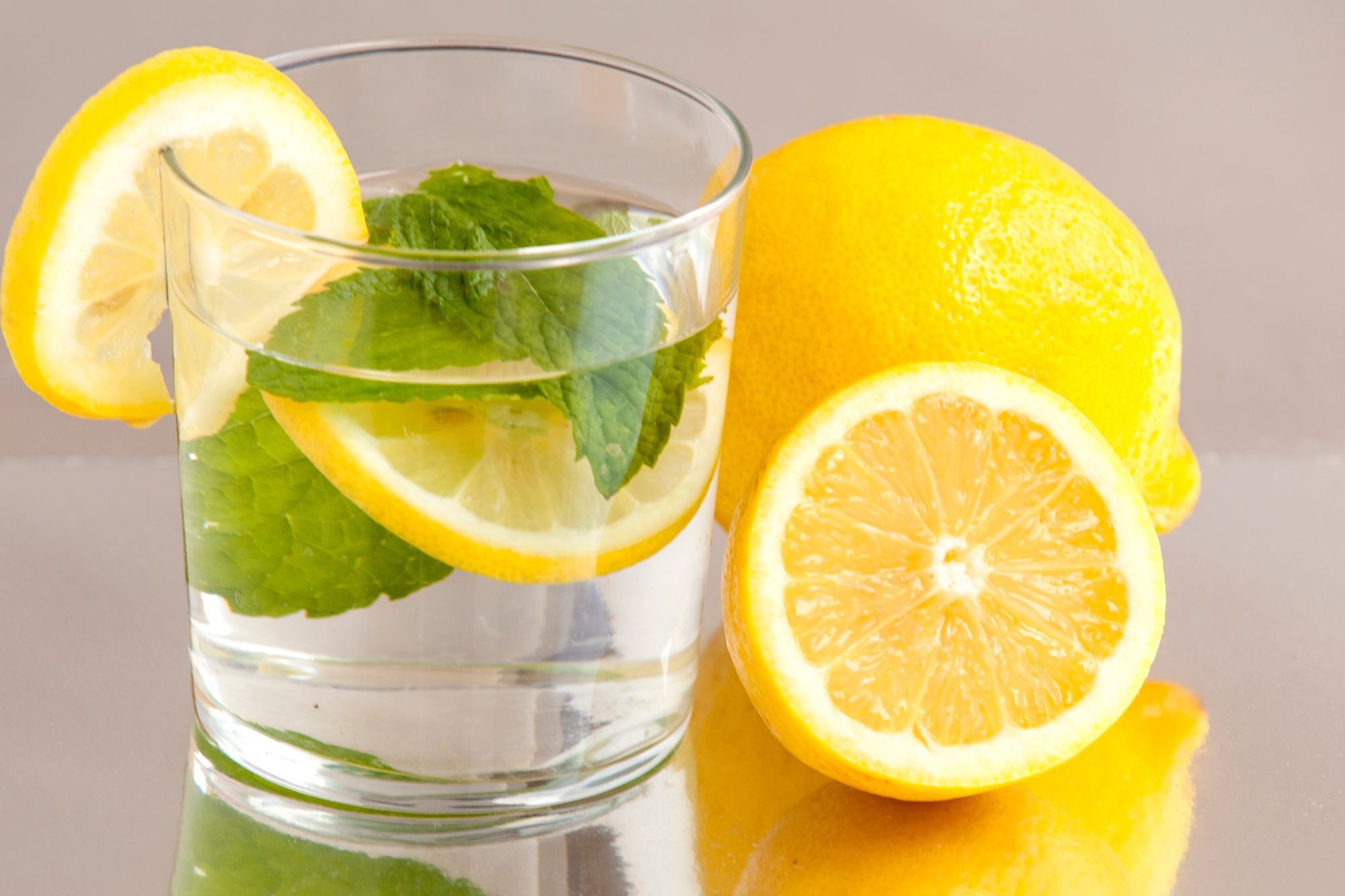Lemon water has become a popular morning ritual for many people, with promises of weight loss and glowing skin. This beverage trend is here to stay, but what are the actual benefits and drawbacks of drinking lemon water every day?
Lemon water is simply water with lemon juice, which is commonly associated with the alkaline diet. This diet theory proposes that consuming alkalizing foods can balance pH levels and prevent various illnesses. Although lemon juice has a low pH and is considered acidic before consumption, it becomes alkalizing after being metabolized. "Despite its low pH, lemon juice is considered alkaline-forming because it leaves an alkaline ash in the body," says registered dietitian Lauren O'Connor, RDN, owner of Nutri Savvy Health and author of The Healthy Alkaline Diet Guide.
Although there is no conclusive scientific evidence to support the alkaline diet theory, consuming acidic ash instead of alkaline ash may increase the risk of certain diseases like osteoporosis. Conversely, alkaline ash is thought to be protective against negative health outcomes. Consuming more alkaline foods, including lemon water, fruits, vegetables, and legumes, may help "alkalize" the body and offer protection.
If you're curious about the effects of drinking lemon water regularly, check out I Drank Lemon Water Every Morning for 30 Days & Noticed These 5 Life-Changing Effects.
1) Staying Hydrated: The Benefits of Proper Hydration

Did you know that about 75% of Americans are not getting enough fluids, leading to dehydration? The symptoms of dehydration can range from mild, such as constipation and dizziness, to severe, such as heat exhaustion and fainting. One of the best ways to combat dehydration is by getting enough fluids into your system, and drinking lemon water can be a refreshing way to do so.
If you enjoy the taste of lemon in your water and it helps you drink more fluids, then go ahead and make a habit of drinking lemon water. Not only will it quench your thirst, but it may also provide additional benefits such as aiding digestion and boosting your vitamin C intake.
Don't wait until you're thirsty to drink water; make it a habit to drink plenty of fluids throughout the day, including water and other hydrating beverages like tea and fruit juice. Remember, staying hydrated is crucial for overall health and well-being.
2) The Potential Link Between Lemon Water and Weight Loss

Lemon water alone is not a guaranteed solution for weight loss, but it can aid in achieving weight management goals by promoting hydration. Adequate hydration is vital for the body's natural ability to break down fat. A 2016 article published in Frontiers in Nutrition explains that stored fat is broken down into glycerol and free fatty acids that the body can use as fuel. However, without proper hydration, the body may struggle to break down these energy sources, leading to difficulty in losing weight.
Drinking lemon water can help you stay hydrated and possibly contribute to your weight loss efforts. Lemon water is a low-calorie beverage that may help replace high-calorie drinks, such as soda or sugary fruit juices, in your diet. Additionally, lemon juice contains a type of fiber called pectin that can help you feel fuller for longer periods, potentially reducing your overall calorie intake.
While drinking lemon water alone may not lead to significant weight loss, it can be a beneficial addition to a healthy diet and exercise routine. Remember to stay hydrated throughout the day, eat a well-balanced diet, and incorporate physical activity into your daily routine for optimal weight management.
3) The Potential Link Between Lemon Water and Mood Enhancement

Staying hydrated can play a significant role in maintaining a good mood. Dehydration can cause fatigue, irritability, and difficulty concentrating, among other negative effects. By choosing to drink lemon water instead of plain water, some people may be more motivated to consume more fluids, which can lead to improved hydration levels.
Additionally, some studies suggest that cellular dehydration is associated with a worsened mood. Maintaining adequate hydration levels can prevent cellular dehydration, which in turn may contribute to a more positive mood.
While lemon water alone may not have a direct effect on mood, it can be a refreshing and tasty way to stay hydrated, which may in turn help to elevate your mood. Drinking enough water, in general, is essential for maintaining good health and well-being, so make sure to prioritize hydration as part of your daily routine.
4) The Potential Role of Lemon Water in Supporting a Healthy Immune System

Lemon water can be a great source of vitamin C, which is essential for a healthy immune system, especially during cold and flu season. One lemon contains 18 milligrams of vitamin C, and adults require between 75 and 130 mg of this vitamin per day depending on factors such as gender and age.
Starting your day with lemon water can give you a boost of vitamin C to help support your immune system's defenses. Although one cup of lemon water alone may not provide 100% of your daily needs, it is a good start to getting the recommended intake of this important nutrient.
Adding other vitamin C-rich foods, such as kiwis, to your diet can help you meet your daily needs. One kiwi contains about 70 milligrams of vitamin C, bringing you even closer to meeting your daily requirement. By incorporating vitamin C-rich foods into your daily routine, you can support your immune system and overall health.
5) The Potential Link Between Lemon Water and Worsening Reflux Symptoms

Lemons are naturally acidic, with a pH ranging between 2 and 3. This acidity can be problematic for individuals who experience acid reflux, as acidic foods can trigger heartburn and further irritate an already inflamed throat. This is especially true for individuals who experience silent reflux, which is characterized by a backflow of stomach acid into the throat.
If you suffer from acid reflux or silent reflux, it may be best to limit or avoid lemon water as it can potentially worsen your symptoms. However, it is always best to speak with a healthcare professional for personalized advice on managing reflux symptoms.
Instead of lemon water, consider trying other hydrating beverages such as plain water, herbal tea, or coconut water, which may be more gentle on the digestive system. Additionally, it is important to maintain a healthy diet and lifestyle, including regular physical activity, to manage reflux symptoms effectively.
6) The Potential Link Between Lemon Water and Tooth Erosion

According to Jack Hirschfeld, DDS, a clinical instructor at the School of Dental Medicine at Lake Erie College of Osteopathic Medicine, consuming acidic beverages such as lemon water can gradually damage tooth enamel. This erosion of the outer layer of teeth can lead to increased tooth sensitivity and a higher risk of cavities in the future.
7) Improved Heart Function Could be a Consequence

Adding garlic to your lemon water drink could potentially lead to improved cardiovascular health by reducing blood pressure and cholesterol levels, according to a study published in the International Journal of Preventive Medicine. The study involved participants who had high levels of fats in their blood, and those who consumed a beverage containing 20 grams of garlic and one tablespoon of lemon juice daily for eight weeks experienced more significant improvements in their cardiovascular risk factors than those who did not drink the beverage. The results showed a decrease in blood pressure and improved lipid levels. Citrus juices such as lemon juice contain hesperidin, a flavonoid that has been associated with positive outcomes such as reduced systolic blood pressure in people with mild hypertension when consumed regularly.
8) It Could Decrease the Risk of Kidney Stone Formation

Citric acid contains a salt called citrate, which can bind to calcium and prevent the formation of kidney stones. Citrus fruits and juices are a natural dietary source of citrate. Among citrus juices, lemon juice is believed to have the highest concentration of citrate, making it an effective blocker of kidney stone formation.
Research has shown that individuals who are at risk of developing kidney stones and consume lemon juice regularly have a lower incidence of passing kidney stones compared to those who do not consume lemon juice. It is important to note that much of the data on the relationship between lemon juice and kidney stones has been gathered from studies involving lemonade consumption, rather than pure lemon juice.

